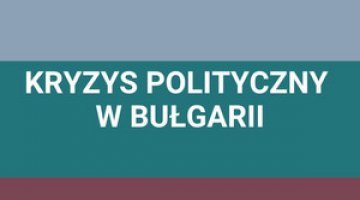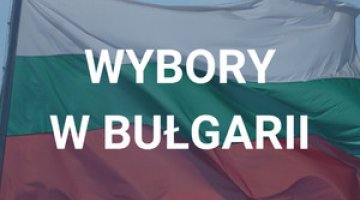Bulgaria: a ‘grand coalition’ government
On 16 January, Bulgaria’s parliament approved a new government led by Rosen Zhelyazkov of the centre-right GERB party, which secured the most votes in the October 2024 election (see ‘Election in Bulgaria: fragmentation of parliament and a strengthened position for the ‘parties of peace’). The Bulgarian Socialist Party – United Left (BSP–OL) and the populist There is Such a People (ITN) joined as coalition partners. Despite being a minority government, Zhelyazkov’s cabinet received a vote of confidence due to the support of MPs representing one of the Turkish minority parties, the Movement for Rights and Freedoms (DPS), led by Ahmed Doğan.
The establishment of a ‘grand coalition’ government offers a potential resolution to Bulgaria’s nearly four-year political crisis. This crisis has resulted in an inability to form a stable government, numerous snap elections, and extended periods of governance by interim governments appointed by President Rumen Radev without parliamentary approval.
Commentary
- The formation of a broad coalition marks a rare success for Bulgaria’s political class, which has historically struggled to adopt a conciliatory stance. This was achieved within three months of the election to the National Assembly. Since spring 2021, Bulgaria has conducted seven parliamentary elections, only two of which led to governments with parliamentary support: the coalition government of Kiril Petkov, centred on the centrist-liberal party We Continue the Change (PP) (2021–22), and Nikolai Denkov’s cabinet, backed by GERB and PP (2023–24). The fragmentation of successive parliaments and the high degree of social polarisation hindered the political scene’s ability to reach compromises. Following the most recent election, parties in the National Assembly took over a month and a half to agree on a candidate for speaker.
- The appointment of a ‘pro-Atlantic’ government is a response to the rise of anti-establishment forces in Bulgaria. The initiative to form the government was led by the victorious GERB party, whose leader stepped down as prime minister, but is still expected to retain significant influence over cabinet decisions, as the new prime minister is one of his closest aides. The coalition’s shared goals include continuing support for Ukraine and countering the influence of pro-Russian and anti-establishment parties such as the Revival party and the Morality, Unity, Honour (MECh) party. These parties came close to gaining even stronger representation, with the Central Election Commission revising the election results twice, ultimately excluding the far-right Majesty party from parliament. At the start of the year, the We Continue the Change – Democratic Bulgaria (PP–DB) alliance withdrew from government negotiations with GERB, citing the proposed coalition agreement’s failure to guarantee reforms in the judiciary and efforts to combat corruption.
- The compromise between the centre-right and the left, which enabled the formation of the government, is historically significant, as the two sides have been rivals for over a decade. GERB’s creation in 2006 was a reaction to post-communist governance, and the two parties have never previously co-governed Bulgaria. They also belong to opposing groups in the European Parliament: GERB is part of the European People’s Party, while the Bulgarian Socialist Party (BSP) is aligned with the Progressive Alliance of Socialists and Democrats. Relations between the two initially deteriorated further following the outbreak of the full-scale war in Ukraine, as the BSP adopted a more national-leftist rhetoric and expressed criticism of military aid for Kyiv. However, the BSP’s position began to shift last year after Atanas Zafirov assumed leadership of the party. Under his guidance, the party’s rhetoric began to emphasise the importance of returning to the mainstream of European social democracy.
- The minority government led by Zhelyazkov will face ongoing challenges in securing parliamentary support, although it may benefit from the absence of better alternatives. Risks include the historically antagonistic relationship between GERB and BSP and the unpredictable stance of ITN, which has recently adopted a conservative-nationalist position while continuing to oscillate between anti-establishment rhetoric and moderate Euroscepticism. However, the threat of another snap election could motivate the coalition to remain unified, provided the DPS’s declared support in parliament remains stable. In exchange for this backing, the government will likely be required to guarantee the party’s maintained influence over parliamentary committees for secret services and to intensify efforts to combat organised crime.
- The GERB–BSP–ITN government has declared its intention to adhere to the principles of NATO’s allied policy and to maintain a pro-Western orientation in foreign policy. This is supported by the prime minister’s profile, as he is regarded as an ally of Ukraine; he visited Kyiv during his tenure as parliamentary speaker (2023–24). Consequently, the Zhelyazkov government is expected to continue supporting Ukraine, despite scepticism from President Rumen Radev and possible opposition within the BSP. The government has also prioritised breaking the deadlock in Bulgaria’s euro adoption process. Although the country has been part of the ERM II system since 2020 and initially intended to adopt the euro in 2024 or 2025, the prolonged political crisis and failure to meet the inflation criterion have indefinitely delayed this goal.
Appendix. The profile of Bulgaria’s new prime minister
Rosen Zhelyazkov was born in 1968 in Sofia; he holds a law degree. Early in his career, he worked as a barrister and in Sofia’s municipal institutions. Following the establishment of the GERB party in 2006, he became a close aide to its leader, Boyko Borisov, and quickly rose to prominence within the party’s main structures. He served in various roles, including secretary of Borisov’s first cabinet (2009–13), head of the telecommunications market regulatory authority, and minister of transport, information technology, and communications in Borisov’s third government (2017–21). From 2023 to 2024, he was the speaker of parliament. In 2024, he was elected to the European Parliament as a GERB-endorsed candidate but resigned to take a seat in the Bulgarian National Assembly. He is married with two children. Since February 2022, he has spoken publicly about the necessity of supporting Ukraine. In February 2024, he paid an official visit to Kyiv, where he was received by his counterpart in Ukraine’s Verkhovna Rada.



